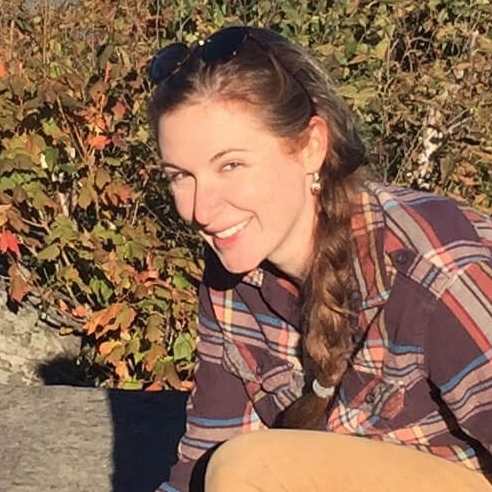Old Favorites & Classics
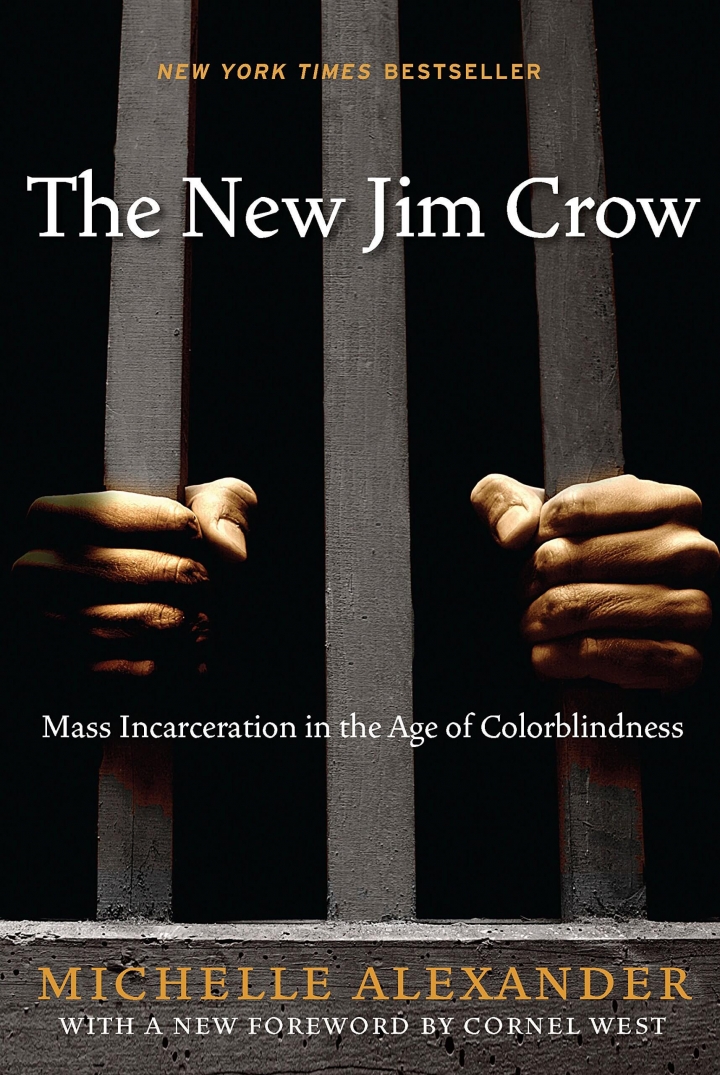
The New Jim Crow: Mass Incarceration in the Age of Color-blindness
Michelle Alexander
Once in a great while a book comes along that changes the way we see the world and helps to fuel a nationwide social movement. The New Jim Crow is such a book. Praised by Harvard Law professor Lani Guinier as “brave and bold,” this book directly challenges the notion that the election of Barack Obama signals a new era of colorblindness. With dazzling candor, legal scholar Michelle Alexander argues that “we have not ended racial caste in America; we have merely redesigned it.” By targeting black men through the War on Drugs and decimating communities of color, the U.S. criminal justice system functions as a contemporary system of racial control—relegating millions to a permanent second-class status—even as it formally adheres to the principle of colorblindness.
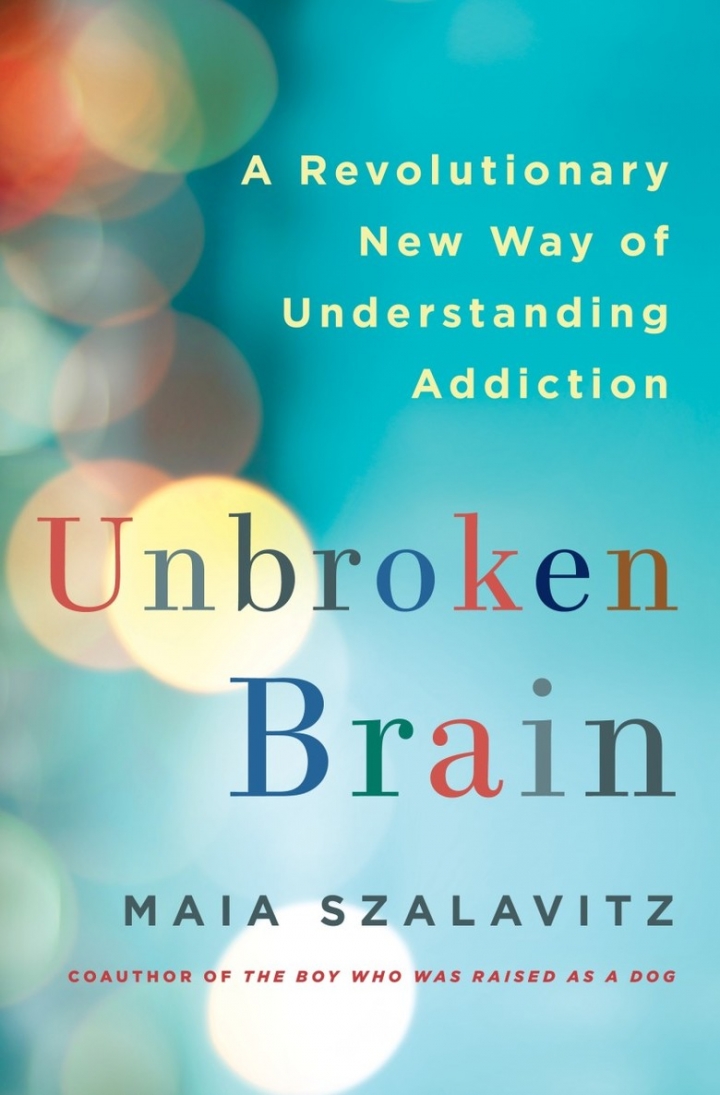
Unbroken Brain: A Revolutionary New Way of Understanding Addiction
Maia Szalavitz
More people than ever before see themselves as addicted to, or recovering from, addiction, whether it be alcohol or drugs, prescription meds, sex, gambling, porn, or the internet. But despite the unprecedented attention, our understanding of addiction is trapped in unfounded 20th century ideas, addiction as a crime or as brain disease, and in equally outdated treatment. Challenging both the idea of the addict’s “broken brain” and the notion of a simple “addictive personality,” Unbroken Brain offers a radical and groundbreaking new perspective, arguing that addictions are learning disorders and shows how seeing the condition this way can untangle our current debates over treatment, prevention and policy. Like autistic traits, addictive behaviors fall on a spectrum — and they can be a normal response to an extreme situation. By illustrating what addiction is, and is not, the book illustrates how timing, history, family, peers, culture and chemicals come together to create both illness and recovery- and why there is no “addictive personality” or single treatment that works for all. Combining Maia Szalavitz’s personal story with a distillation of more than 25 years of science and research, Unbroken Brain provides a paradigm-shifting approach to thinking about addiction.
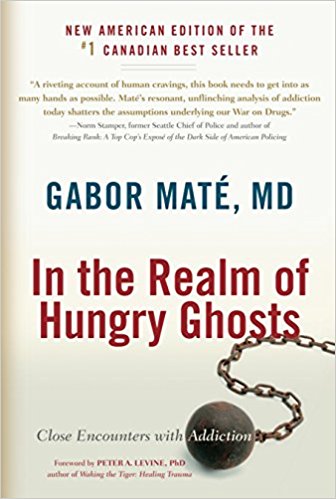
In the Realm of Hungry Ghosts: Close Encounters with Addiction
Gabor Mate
Based on Gabor Mate’s two decades of experience as a medical doctor and his groundbreaking work with the severely addicted on Vancouver’s skid row, In the Realm of Hungry Ghosts radically reenvisions this much misunderstood field by taking a holistic approach. Dr. Mate presents addiction not as a discrete phenomenon confined to an unfortunate or weak-willed few, but as a continuum that runs throughout (and perhaps underpins) our society; not a medical “condition” distinct from the lives it affects, rather the result of a complex interplay among personal history, emotional, and neurological development, brain chemistry, and the drugs (and behaviors) of addiction. Simplifying a wide array of brain and addiction research findings from around the globe, the book avoids glib self-help remedies, instead promoting a thorough and compassionate self-understanding as the first key to healing and wellness. In the Realm of Hungry Ghosts argues persuasively against contemporary health, social, and criminal justice policies toward addiction and those impacted by it. The mix of personal stories—including the author’s candid discussion of his own “high-status” addictive tendencies—and science with positive solutions makes the book equally useful for lay readers and professionals.
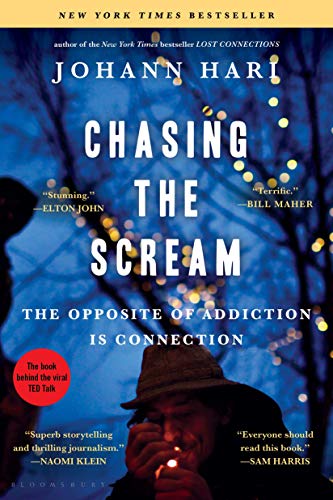
Chasing the Scream
Johann Hari
For the first time, the startling full story of the disastrous war on drugs–propelled by moving human stories, revolutionary insight into addiction, and fearless international reporting. What if everything you think you know about addiction is wrong? One of Johann Hari’s earliest memories is of trying to wake up one of his relatives and not be able to. As he grew older, he realized he had addiction in his family. Confused, unable to know what to do, he set out on a three-year, 30,000-mile journey to discover what really causes addiction–and what really solves it. He uncovered a range of remarkable human stories–of how the war on drugs began with Billie Holiday, the great jazz singer, being stalked and killed by a racist policeman; of the scientist who discovered the surprising key to addiction; and of the countries that ended their war on drugs–with extraordinary results.
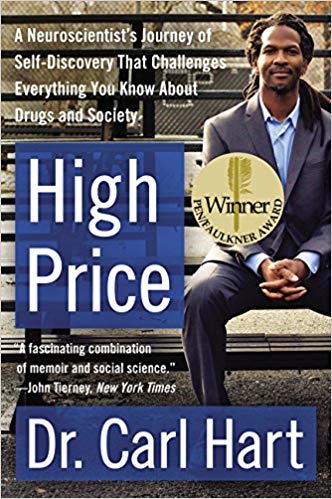
High Price: A Neuroscientist's Journey of Self Discovery that Challenges Everything You Know about Drugs and Society
Carl Hart
High Price is the harrowing and inspiring memoir of neuroscientist Carl Hart, a man who grew up in one of Miami’s toughest neighborhoods and, determined to make a difference as an adult, tirelessly applies his scientific training to help save real lives.
Young Carl didn’t see the value of school, studying just enough to keep him on the basketball team. Today, he is a cutting-edge neuroscientist—Columbia University’s first tenured African American professor in the sciences—whose landmark, controversial research is redefining our understanding of addiction. In this provocative and eye-opening memoir, Dr. Carl Hart recalls his journey of self-discovery, how he escaped a life of crime and drugs and avoided becoming one of the crack addicts he now studies. Interweaving past and present, Hart goes beyond the hype as he examines the relationship between drugs and pleasure, choice, and motivation, both in the brain and in society. His findings shed new light on common ideas about race, poverty, and drugs, and explain why current policies are failing.
Deeper Dives

Righteous Dopefiend
Philippe Bourgois
This powerful study immerses the reader in the world of homelessness and drug addiction in the contemporary United States. For over a decade Philippe Bourgois and Jeff Schonberg followed a social network of two dozen heroin injectors and crack smokers on the streets of San Francisco, accompanying them as they scrambled to generate income through burglary, panhandling, recycling, and day labor. Righteous Dopefiend interweaves stunning black-and-white photographs with vivid dialogue, detailed field notes, and critical theoretical analysis. Its gripping narrative develops a cast of characters around the themes of violence, race relations, sexuality, family trauma, embodied suffering, social inequality, and power relations. The result is a dispassionate chronicle of survival, loss, caring, and hope rooted in the addicts’ determination to hang on for one more day and one more “fix” through a “moral economy of sharing” that precariously balances mutual solidarity and interpersonal betrayal.
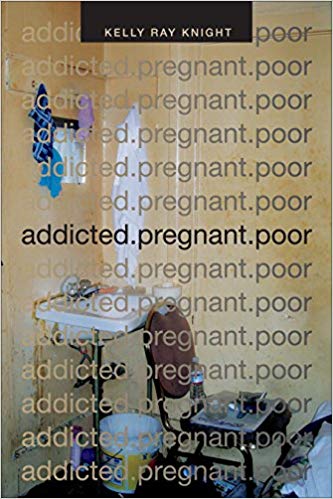
Addicted, Pregnant, and Poor
Kelly Ray Knight
For the addicted, pregnant, and poor women living in daily-rent hotels in San Francisco’s Mission district, life is marked by battles against drug cravings, housing debt, and potential violence. In this stunning ethnography Kelly Ray Knight presents these women in all their complex humanity and asks what kinds of futures are possible for them given their seemingly hopeless situation. During her four years of fieldwork Knight documented women’s struggles as they traveled from the street to the clinic, jail, and family court, and back to the hotels. She approaches addicted pregnancy as an everyday phenomenon in these women’s lives and describes how they must navigate the tension between pregnancy’s demands to stay clean and the pull of addiction and poverty toward drug use and sex work. By creating the space for addicted women’s own narratives and examining addicted pregnancy from medical, policy, and social science perspectives, Knight forces us to confront and reconsider the ways we think about addiction, trauma, health, criminality, and responsibility.
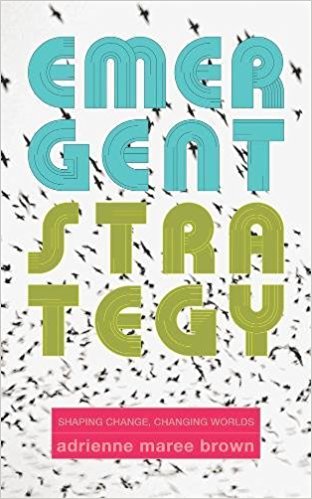
Emergent Strategy: Shaping Change, Shaping Worlds
Adrienne Maree Brown
Inspired by Octavia Butler’s explorations of our human relationship to change, Emergent Strategy is radical self-help, society-help, and planet-help designed to shape the futures we want to live. Change is constant. The world is in a continual state of flux. It is a stream of ever-mutating, emergent patterns. Rather than steel ourselves against such change, this book invites us to feel, map, assess, and learn from the swirling patterns around us in order to better understand and influence them as they happen. This is a resolutely materialist “spirituality” based equally on science and science fiction, a visionary incantation to transform that which ultimately transforms us.
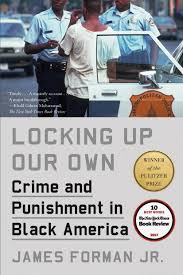
Locking Up Our Own: Crime and Punishment in Black America
James Forman Jr.
Former public defender James Forman, Jr. is a leading critic of mass incarceration and its disproportionate impact on people of color. In Locking Up Our Own, he seeks to understand the war on crime that began in the 1970s and why it was supported by many African American leaders in the nation’s urban centers. Forman shows us that the first substantial cohort of black mayors, judges, and police chiefs took office amid a surge in crime and drug addiction. Many prominent black officials, including Washington, D.C. mayor Marion Barry and federal prosecutor Eric Holder, feared that the gains of the civil rights movement were being undermined by lawlessness―and thus embraced tough-on-crime measures, including longer sentences and aggressive police tactics. In the face of skyrocketing murder rates and the proliferation of open-air drug markets, they believed they had no choice. But the policies they adopted would have devastating consequences for residents of poor black neighborhoods. A former D.C. public defender, Forman tells riveting stories of politicians, community activists, police officers, defendants, and crime victims. He writes with compassion about individuals trapped in terrible dilemmas―from the men and women he represented in court to officials struggling to respond to a public safety emergency. Locking Up Our Own enriches our understanding of why our society became so punitive and offers important lessons to anyone concerned about the future of race and the criminal justice system in this country.
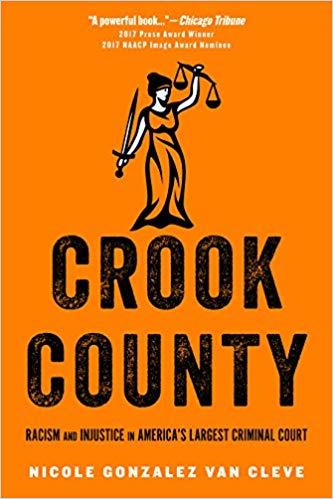
Crook County: Racism and Injustice in America's Largest Criminal Court
Nicole Gonzalez Van Cleve
Americans are slowly waking up to the dire effects of racial profiling, police brutality, and mass incarceration, especially in disadvantaged neighborhoods and communities of color. The criminal courts are the crucial gateway between police action on the street and the processing of primarily black and Latino defendants into jails and prisons. And yet the courts, often portrayed as sacred, impartial institutions, have remained shrouded in secrecy, with the majority of Americans kept in the dark about how they function internally. Crook County bursts open the courthouse doors and enters the hallways, courtrooms, judges’ chambers, and attorneys’ offices to reveal a world of punishment determined by race, not offense.
Fresh Cuts
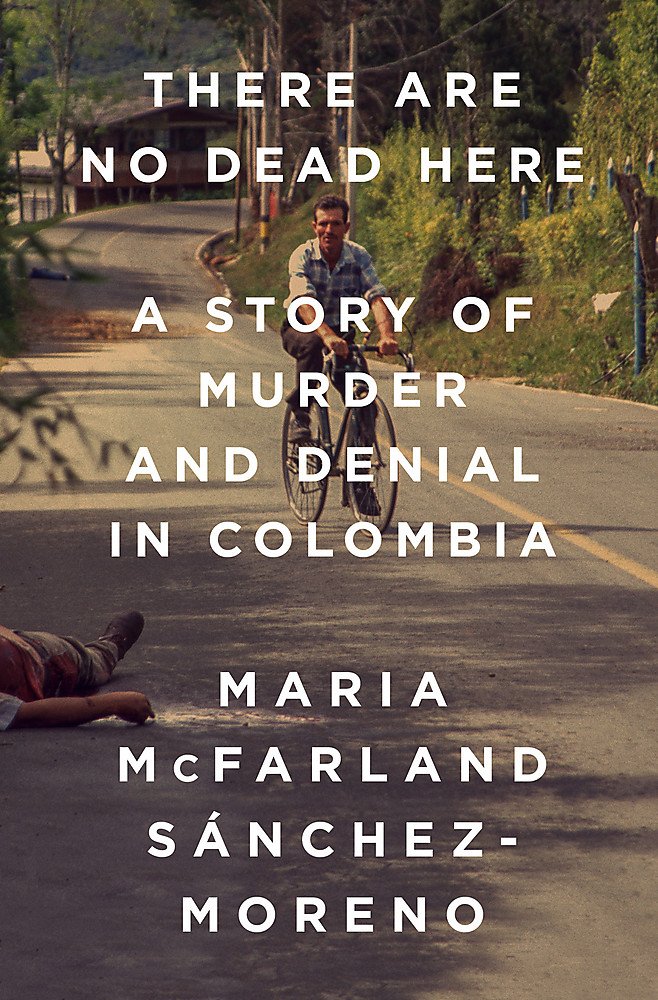
There are No Dead Here: A Story of Murder and Denial in Columbia
Maria McFarland Sánchez-Moreno, Executive Director of the Drug Policy Alliance
Colombia’s drug-fueled cycle of terror, corruption, and tragedy did not end with Pablo Escobar’s death in 1993. Just when Colombians were ready to move past the murderous legacy of the country’s cartels, a new, bloody chapter unfolded. In the late 1990s, right-wing paramilitary groups with close ties to the cocaine business carried out a violent expansion campaign, massacring, raping, and torturing thousands. Taking readers from the sweltering Medellín streets where criminal investigators were hunted by assassins, through the countryside where paramilitaries wiped out entire towns, and into the corridors of the presidential palace in Bogotá, There Are No Dead Here is an unforgettable portrait of the valiant men and women who dared to stand up to the tide of greed, rage, and bloodlust that threatened to engulf their country.
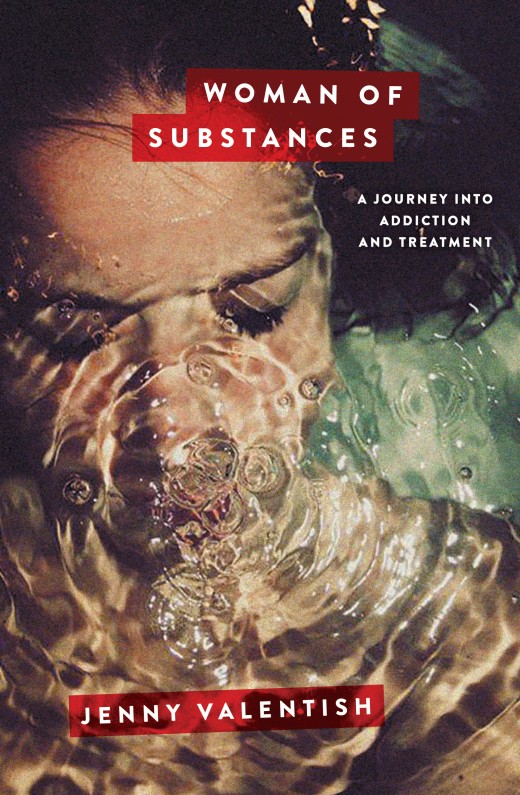
Women of Substances: A Journey Into Addiction and Treatment
Jenny Valentish
Journalist Jenny Valentish investigates the female experience of drugs and alcohol, using her own story to light the way. Her travels around Australia take her to treatment facilities and AA groups. Mining the expertise of leading researchers, she explores the early predictors of addiction, such as childhood trauma and temperament, and teenage impulsivity.Drawing on neuroscience, she explains why other self-destructive behaviours – such as eating disorders, compulsive buying and high-risk sex – are interchangeable with problematic substance use. Valentish follows the pathways that women, in particular, take into addiction – and out again. Woman of Substances is an insightful, rigorous and brutally honest read.
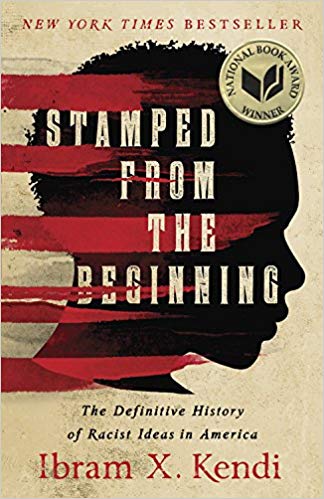
Stamped from the Beginning: The Definitive History of Racist Ideas in America
Ibram X. Kendi
Some Americans insist that we’re living in a post-racial society. But racist thought is not just alive and well in America–it is more sophisticated and more insidious than ever. And as award-winning historian Ibram X. Kendi argues, racist ideas have a long and lingering history, one in which nearly every great American thinker is complicit. In this deeply researched and fast-moving narrative, Kendi chronicles the entire story of anti-black racist ideas and their staggering power over the course of American history. He uses the life stories of five major American intellectuals to drive this history: Puritan minister Cotton Mather, Thomas Jefferson, abolitionist William Lloyd Garrison, W.E.B. Du Bois, and legendary activist Angela Davis. As Kendi shows, racist ideas did not arise from ignorance or hatred. They were created to justify and rationalize deeply entrenched discriminatory policies and the nation’s racial inequities. In shedding light on this history, Stamped from the Beginning offers us the tools we need to expose racist thinking. In the process, he gives us reason to hope.
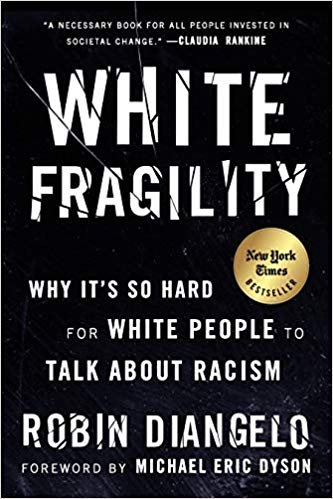
White Fragility: Why It's So Hard for White People to Talk About Racism
Robin DiAngelo
In this “vital, necessary, and beautiful book” (Michael Eric Dyson), antiracist educator Robin DiAngelo deftly illuminates the phenomenon of white fragility and “allows us to understand racism as a practice not restricted to ‘bad people’ (Claudia Rankine). Referring to the defensive moves that white people make when challenged racially, white fragility is characterized by emotions such as anger, fear, and guilt, and by behaviors including argumentation and silence. These behaviors, in turn, function to reinstate white racial equilibrium and prevent any meaningful cross-racial dialogue. In this in-depth exploration, DiAngelo examines how white fragility develops, how it protects racial inequality, and what we can do to engage more constructively.
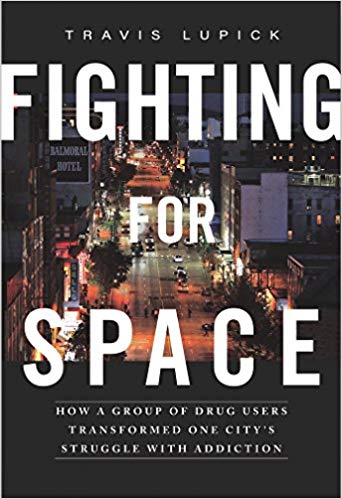
Fighting For Space: How a Group of Drug Users Transformed One City's Struggle with Addiction
Travis Lupick
North America is in the grips of a drug epidemic; with the introduction of fentanyl, the chances of a fatal overdose are greater than ever, prompting many to rethink the war on drugs. Public opinion has slowly begun to turn against prohibition, and policy-makers are finally beginning to look at addiction as a health issue as opposed to one for the criminal justice system. While deaths across the continent continue to climb, Fighting for Space explains the concept of harm reduction as a crucial component of a city’s response to the drug crisis. It tells the story of a grassroots group of addicts in Vancouver’s Downtown Eastside who waged a political street fight for two decades to transform how the city treats its most marginalized citizens. Over the past twenty-five years, this group of residents from Canada’s poorest neighborhood organized themselves in response to the growing number of overdose deaths and demanded that addicts be given the same rights as any other citizen; against all odds, they eventually won. But just as their battle came to an end, fentanyl arrived and opioid deaths across North America reached an all-time high. The “genocide” in Vancouver finally sparked government action. Twenty years later, as the same pattern plays out in other cities, there is much that advocates for reform can learn from Vancouver’s experience. Fighting for Space tells that story—including case studies in Ohio, Florida, New York, California, Massachusetts, and Washington state—with the same passionate fervor as the activists whose tireless work gave dignity to addicts and saved countless lives.


